What is the Future of Mobile Consumption?
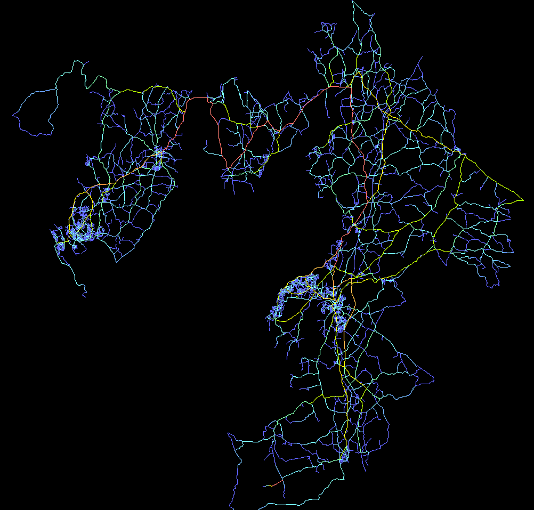
What is the future of mobile consumption? How can we design future using space syntax and mobile utopia as a method?
Mobilizing the Urban Model: A Workshop on Spatial Analysis and Mobile Utopias of Consumption
A one-day workshop on mobile future was hosted by the Centre for Mobilities Research (CeMoRe) with funding from the Institute for Social Futures (ISF) at Lancaster University. It was led by Monika Büscher and facilitated by Jamie O’Brien and Zofia Bednarowska. Participants had a unique chance to get to know UCL space syntax software, receive instruction on its use and experiment with it, discuss its relevance to social science, as well as learn more about urban space, spatial analysis, mobile consumption and futures thinking.
Monika Büscher provided a valuable insight into mobile utopia topic, as well as future thinking. An overview of spatial analysis by Zofia Bednarowska included the most valuable projects in this topic. Participants had a chance to co-create their own consumer journeys maps during interactive game. By drawing their consumer journeys on printed maps or even sketching their own maps, they were able to analyse their own consumption mobility within Lancaster and draw conclusions on how consumption is embedded in their everyday practices and urban space.
It was a pre-activity before the introduction to theory and methods of Space Syntax, led by Jamie O’Brien. Participants worked with generated urban models of movement potentials of Lancaster and Lancashire. The model was involved using the software Depthmap developed by The Bartlett Space Syntax Laboratory and open-source QGIS. As Jamie O’Brien was explaining space syntax model of Lancaster, participants were able to follow it on the screen and the printed out maps.
Outputs of the workshop – participant maps, as well as Depthmap model worked as a prompt for mobile utopia discussion. Participants developed interpretation of the results, critical overview and usability of outputs in creating mobile utopia of consumption in the future.
The discussion concerned thinking futures, with a direct application of social science theoretical background merged with other disciplines in order to shape futures of consumer mobilities. Together, we were able to capture ideas for future mobile consumer utopias development using spatial analysis. The discussion concerned futures of urban consumption, urban space movement and differential mobility possibilities for consumers-citizens.
Thanks to differentiation of the academic background of the participants, the discussion included valuable, interdisciplinary insight into social futures and possible ways to improve futures research. The workshop contributed to thinking on futures of consumption and mobile utopias of consumption through spatial analysis. This will lead to cooperation in future. Outputs of the workshops will be further analysed and the results will be published.
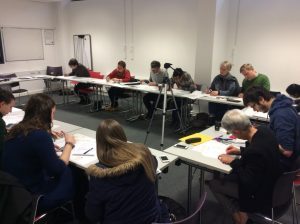
Participants working on maps of consumption journeys in and around Lancaster
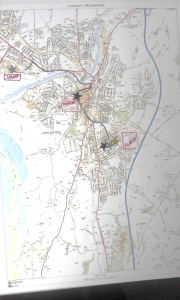
A participant’s map of regular consumption journeys
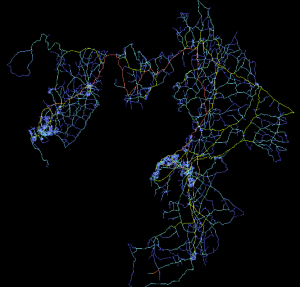
Space Syntax Depthamp model of Lancaster’s regional urban network
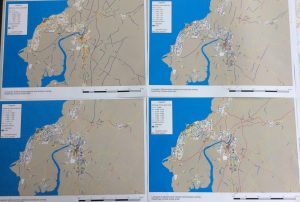
Space Syntax Depthmap model of Lancaster’s regional urban network in four different scales
Zofia is a PhD candidate in the Department of Sociology of Economy, Education and Methods of Social Research at the Institute of Sociology at the Jagiellonian University in Kraków. Her research focuses on consumer behaviour theory, sociology of space, spatial statistics, geostatistics, data visualisation, test pricing, methodology of market research in social and statistical data analysis.